theartsdesk at Itinéraire Baroque 2018 - canaries in front of a Périgord altar | reviews, news & interviews
theartsdesk at Itinéraire Baroque 2018 - canaries in front of a Périgord altar
theartsdesk at Itinéraire Baroque 2018 - canaries in front of a Périgord altar
Distinguished Dordogne dweller Ton Koopman and friends meet in a Romanesque priory
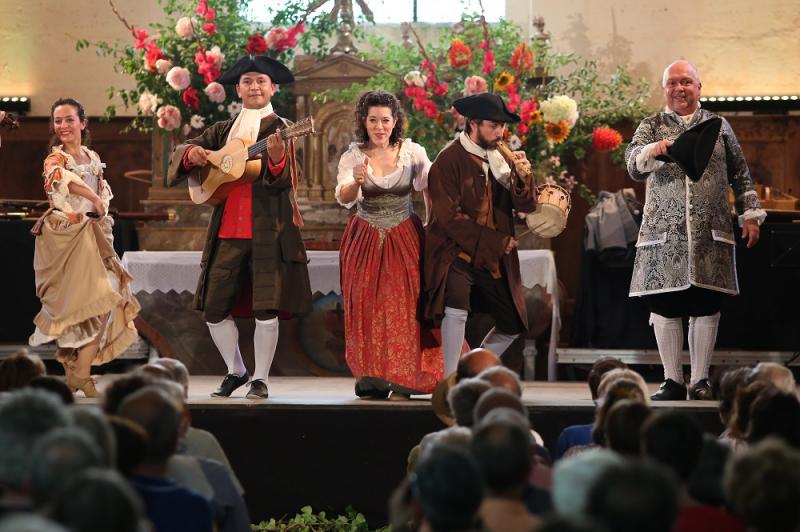
Brits are the folk you expect to encounter the most in the rural-England-on-steroids of the beautiful Dordogne. In my experience they outnumber the French, at least in high summer, not just as visitors and retired homeowners but also as artisans selling their wares in Riberac's big Friday market.
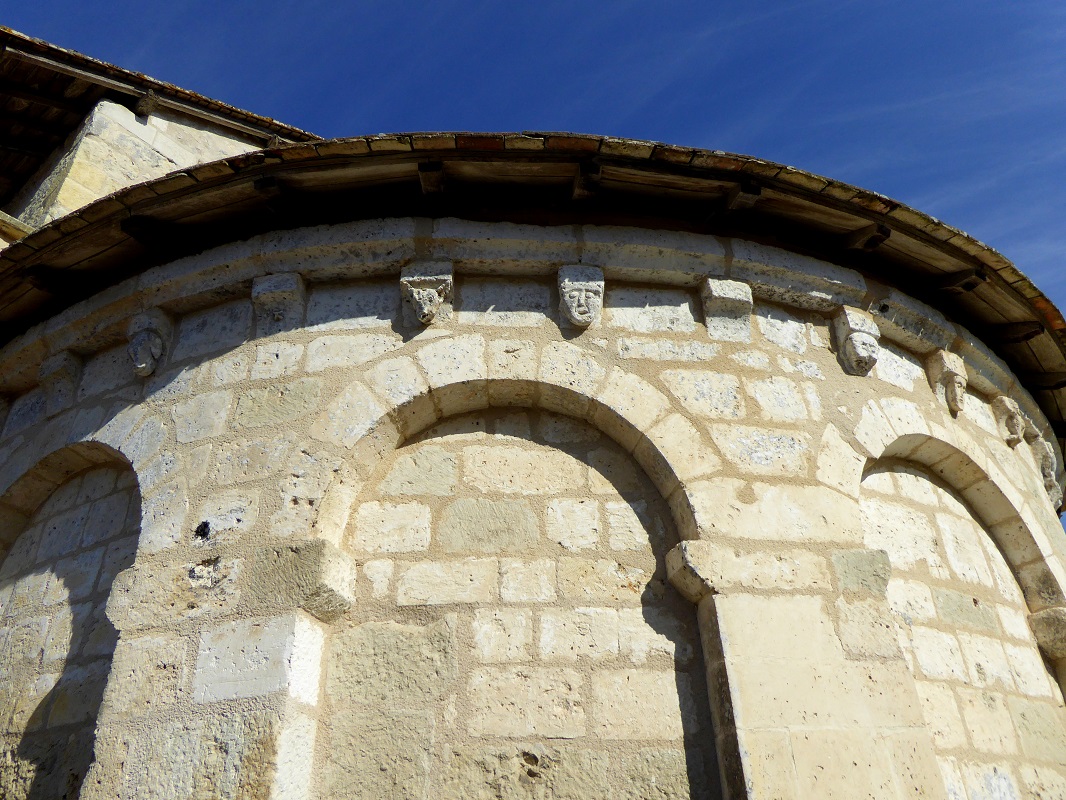
I think I'm right in saying that there were no British players in any of the four Cercles specials I attended (and nothing from honorary Englishman Handel). The continental European mix was well represented, though, both in the programming and not least in the players of Koopman's Amsterdam Baroque Orchestra led in style by Rie Kimura (Catherine Manson was to be there for the last night). Not much great music was on the programme of the "Ouverture" on Thursday night, but the soloists were choice: Antoine Torunczyk on oboe d'amore for a Telemann Concerto; Simen van Mechelen resplendent on the sackbut, trombone forerunner, in Albrechtsberger; and Ernest Schadler and Markus Springer in Werner and the most individual concerto on the programme, Telemann's spotlighting two chalumeaux, ancestors of the clarinet.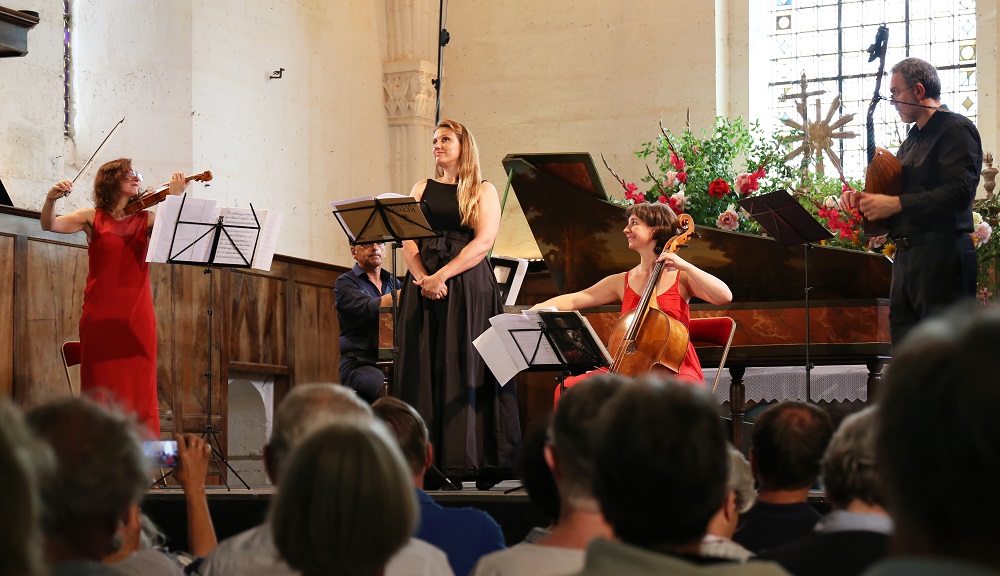 In such company, Bach's only religious cantata for tenor, "Ich armer Mensch, ich Sündenknecht", darkly shone, the words well pointed by Tilman Lichdi, though his support wasn't always ideal. There was greater vocal distinction the following morning from soprano Julia Wischniewski, part of the otherwise Italian ensemble L'Astrée in an all-Vivaldi programme (pictured above). The scholarly aspect was in resources from the National Library of Turin University, 26 manuscripts purchased as a gift to the library by Jewish stockbroker Roberto Foa in memory of his son in 1926.
In such company, Bach's only religious cantata for tenor, "Ich armer Mensch, ich Sündenknecht", darkly shone, the words well pointed by Tilman Lichdi, though his support wasn't always ideal. There was greater vocal distinction the following morning from soprano Julia Wischniewski, part of the otherwise Italian ensemble L'Astrée in an all-Vivaldi programme (pictured above). The scholarly aspect was in resources from the National Library of Turin University, 26 manuscripts purchased as a gift to the library by Jewish stockbroker Roberto Foa in memory of his son in 1926.
On the vocal front, there were plangency and fire especially in "Elvira, anima mia", RV 654, and the repeat encore was fully justified. Especially distinguished playing from violinist Paola Nervi and cellist Rebeca Ferri amplified the pleasures. But the biggest gift of all came from Ferri's spirit of delight in everything she played. You don't have to show the significance of all you do; many musicians are more reserved and yet achieve top-quality results. But it certainly makes everyone present feel even better.
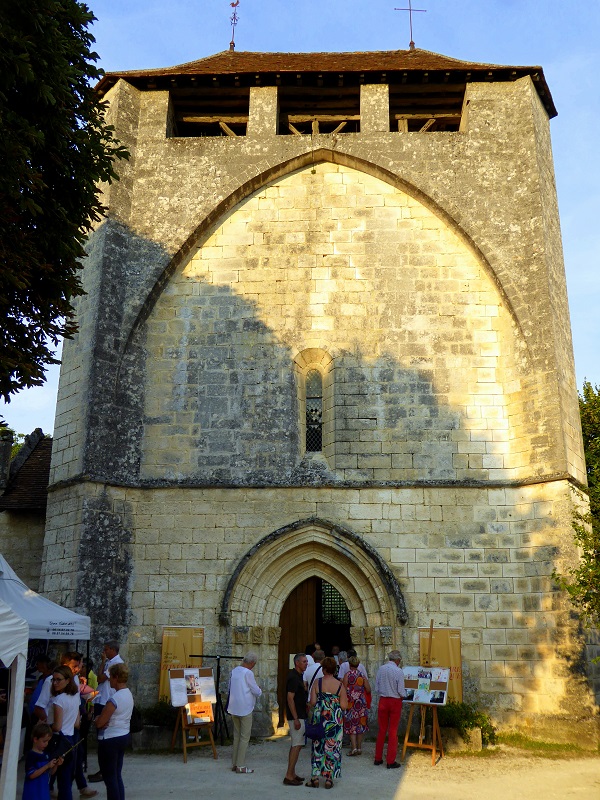
This programme, too, was well coordinated to educate us in the Spanish vigour which later rooted the French "belle danse". A first half stayed close to the source, while the second gave Iberian spirit to courtly gavottes, courantes and the like (the Folies d'Espagne struck as the most familiar, thanks to countless variations). But there was nothing dusty for a second of this wondrous entertainment with its performers of all shapes and sizes – the brilliance of dance execution not always to be found where you expected it. As for the "canaries", the dance-form whisked the ensemble out of the church again. If only we could have joined them for a communal romp on the lawn.
With interludes throughout the day devoted to eating a lunch of local produce under the awnings outside Saint-Cybard, a short walk into La Tour-Blanche to root around the old castle (rather creepy since its last inhabitants burned to death a short time ago) and a dash back to Riberac for more food and a quick change, it was a long day – and a very long concert at the end of it from Koopman and his wife, Tini Mathot, on various chamber organs and harpsichord (pictured below). 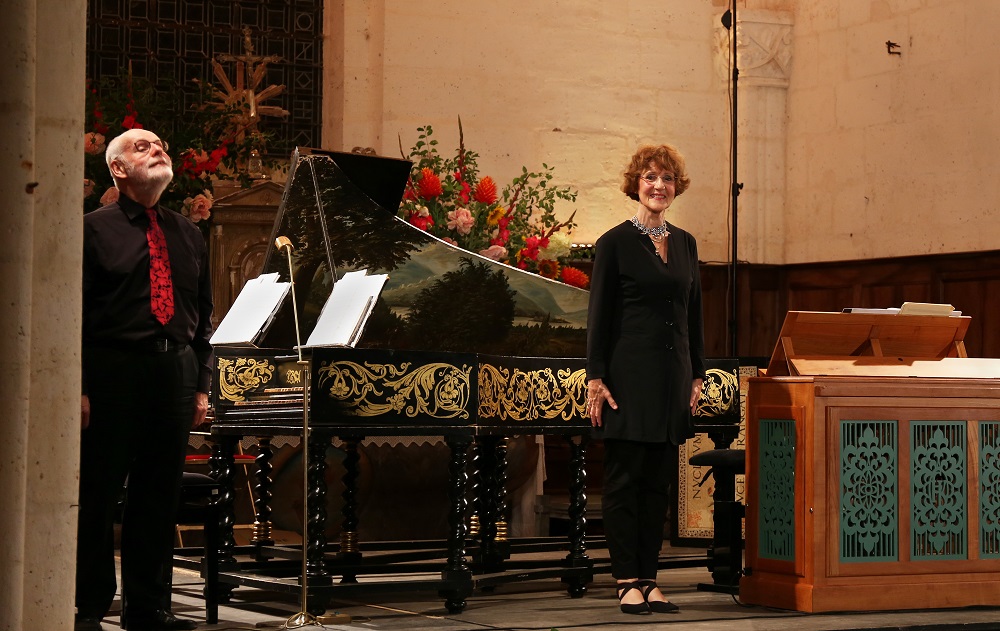 Let's just say that the very personable Koopman's style is idiosyncratic, and that a little of the equally eccentric Antonio Soler's music goes a long way. As in Christian Zacharias's selection of Soler sonatas at the East Neuk Festival, the Spaniard outstayed his welcome, in this case with three of the concertos he composed for the two organs in the Escorial Chapel. But it was bliss to stand in the churchyard chatting to two of the lively team of young festival volunteers – Dutch and American – as we watched for the eclipse. The already orange moon of the previous evening only hazily appeared before going behind clouds, but there was the happy bonus after dark of a hedgehog scuttling along the wall. Rural pleasures in France served up with music as a far from incidental accompaniment are always a joy.
Let's just say that the very personable Koopman's style is idiosyncratic, and that a little of the equally eccentric Antonio Soler's music goes a long way. As in Christian Zacharias's selection of Soler sonatas at the East Neuk Festival, the Spaniard outstayed his welcome, in this case with three of the concertos he composed for the two organs in the Escorial Chapel. But it was bliss to stand in the churchyard chatting to two of the lively team of young festival volunteers – Dutch and American – as we watched for the eclipse. The already orange moon of the previous evening only hazily appeared before going behind clouds, but there was the happy bonus after dark of a hedgehog scuttling along the wall. Rural pleasures in France served up with music as a far from incidental accompaniment are always a joy.
Explore topics
Share this article
The future of Arts Journalism
You can stop theartsdesk.com closing!
We urgently need financing to survive. Our fundraising drive has thus far raised £49,000 but we need to reach £100,000 or we will be forced to close. Please contribute here: https://gofund.me/c3f6033d
And if you can forward this information to anyone who might assist, we’d be grateful.

Subscribe to theartsdesk.com
Thank you for continuing to read our work on theartsdesk.com. For unlimited access to every article in its entirety, including our archive of more than 15,000 pieces, we're asking for £5 per month or £40 per year. We feel it's a very good deal, and hope you do too.
To take a subscription now simply click here.
And if you're looking for that extra gift for a friend or family member, why not treat them to a theartsdesk.com gift subscription?

Add comment